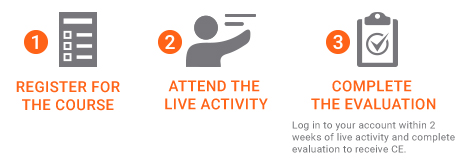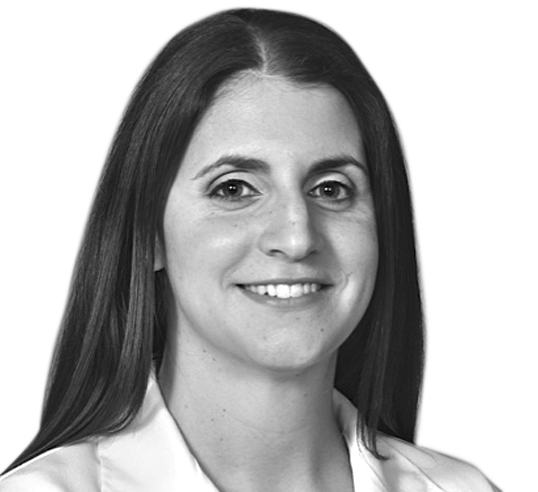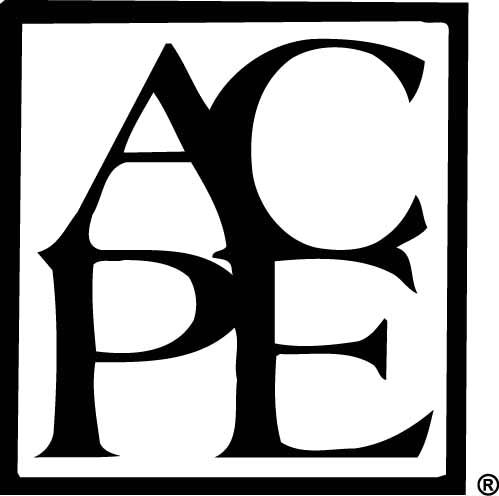Virtual Seminar – August 8-9, 2020
ESSENTIAL ELEMENTS OF HAZARDOUS DRUG COMPOUNDING


Please note that the live stream will take place according to Pacific Daylight Time (PDT).
Pacific Daylight Time: Day 1, 8AM to 5PM; Day 2, 8AM to 12PM.
Are you currently compounding with any of these active pharmaceutical ingredients: apomorphone, azathioprin, cyclophosphamide, cyclosporine, diethylstilbestrol, estradiol, fluorouracil, medroxyprogesterone, phenytoin, progesterone, spironolactone, or tacrolimus? To view the NIOSH List of Antineoplastic and Other Hazardous Drugs in Healthcare Settings (2016), please click here.
If so, you should be compliant with USP General Chapter <800> Hazardous Drugs – Handling in Healthcare Settings, which was formally published February 1, 2016 in the First Supplement to USP 39-NF 34. USP <800> became official on December 1, 2019, although it is currently informational only and not compendially applicable (for the latest from USP, please click here). While USP <800> may not be compendially applicable, it is important to check with your State Board of Pharmacy for current regulations with respect to Hazardous Drug (HD) handling, as they may already have, or are in the process of adopting USP <800>, either in part or in whole. In light of this, waiting too long to begin the implementation process and ensuring HD compliance could negatively impact your practice. It is critical that pharmacies that compound HDs prepare their equipment, processes, and staff for the requirements of USP <800>. During this training activity, you will learn about personal protective equipment, engineering controls, closed system transfer devices, facility design, workflow considerations, and safe handling practices. Moreover, you will learn how to minimize and prevent hazardous drug contamination and exposure through: powder containment techniques, waste disposal, staff training, and the handling of emergency situations such as chemical spills.
Although the negative health risks associated with occupational exposure are well-defined, the practical application and implementation of the requirements outlined in USP <800> can be challenging. This training activity will provide you with the resources needed for either an easy transition to becoming compliant or maintaining compliance with USP <800>.

Concerned about USP <800> and the implications for you and your practice? Browse our FAQ for an idea of the topics we address in full during our Hazardous Drug Compounding seminar.
Intended audience
- Pharmacists and Pharmacy Technicians
- Pharmacy Managers
- Auditors and Inspectors
- Quality Assurance Officers
- Compliance Specialists
Learning Objectives
FOR PHARMACISTS:
- Describe the hazardous compounding regulatory framework and standards of practice, including OSHA, NIOSH and USP <800>.
- Examine the risks of working with hazardous drugs in the pharmacy and healthcare continuum.
- Construct a pharmacy-specific hazardous drug list by assessing the occupational risks associated with hazardous drugs.
- Evaluate the critical strategies required to protect personnel, patients, and the environment when handling hazardous drugs in a healthcare setting.
- Assess hazard communication and training requirements.
- Contrast containment primary engineering controls (C-PECs) and their application.
- Interpret facility design plans for non-sterile and sterile hazardous drug compounding.
- Manage safe handling practices required for hazardous drug handling and compounding.
- Evaluate deactivation and decontamination procedures.
- Select personal protective equipment based on the NIOSH tiered approach.
- Demonstrate donning and doffing procedures.
- ?Examine the advantages of medical surveillance and environmental monitoring.
FOR TECHNICIANS:
- Describe the hazardous compounding regulatory framework and standards of practice, including OSHA, NIOSH and USP <800>.
- List the risks of working with hazardous drugs in the pharmacy and healthcare continuum.
- Construct a pharmacy-specific hazardous drug list by assessing the occupational risks associated with hazardous drugs.
- Outline strategies required to protect personnel, patients, and the environment when handling hazardous drugs in a healthcare setting.
- Recognize the importance of hazard communication and training requirements.
- Describe the different containment primary engineering controls (C-PECs) and their rationale for use.
- Reproduce facility design plans for non-sterile and sterile hazardous drug compounding.
- Outline safe handling practices required for hazardous drug handling and compounding.
- Describe deactivation and decontamination procedures.
- Select personal protective equipment based on the NIOSH tiered approach.
- Demonstrate donning and doffing procedures.
- List the advantages of medical surveillance and environmental monitoring.
FINANCIAL SUPPORT:
This learning activity has received financial support from MEDISCA Inc. in the form of an educational grant.
COPYRIGHT:
The live activity workbook is copyright © 2016 LP3 Network.
CHRISTINE ROUSSEL, PharmD, BCOP, BCSCP |  |
Dr. Christine Roussel is a Board Certified Oncology Pharmacist Board Certified Sterile Compounding Pharmacist with a bachelor's in Toxicology and doctorate in Pharmacy from Philadelphia College of Pharmacy. She is Director of Pharmacy at Doylestown Hospital (Pennsylvania), Adjunct Assistant Professor at USciences, Facilitator for LP3 Network, and consultant for MEDISCA Network. On top of her day job of overseeing the clinical and operational aspects of patient care, she provides over 100 hours of education to pharmacists, pharmacy technicians, physicians, and nurses each year.
Dr. Roussel focuses on occupational exposure to hazardous drugs, sterile/non-sterile compounding, clinical and legislative topics, such as medical cannabis, opioid stewardship, drug diversion prevention, pharmaceutical waste and contamination. She is a consultant for cleanroom facility design. She has authored articles on occupational exposure to hazardous drugs, as protecting healthcare providers’ DNA is her primary passion! Her most recent publication is: Meta-analysis of chromosomal aberrations as a biomarker of exposure in healthcare workers occupationally exposed to antineoplastic drugs. In 2018 she was nationally recognized as “40 Under 40 in Oncology”
She is active in many professional organizations, including Delegate for the American Society of Health Systems Pharmacy, President of the Pennsylvania Society of Health Systems Pharmacy, Board of Directors for International Society of Cannabis Pharmacists, American Industrial Hygiene Association, and the Association for Compounding Pharmacists (ACP).
Editor
 ADAM BEACH, PhD ADAM BEACH, PhDLearning Technology Manager Disclosure: None |  |
Total CPE Credits: 12 CPE hours = 1.2 CEUs
Joint Providership Status (CPE Consultants, LLC / LP3 Network)
Activity Type: Application-based
UAN: 0864-9999-18-046-L07-P/T for pharmacists and technicians
Release date: May 12, 2018
Expiration date: May 12, 2021
To receive CPE credits for the live component, participants must demonstrate full and satisfactory participation, and submit a completed evaluation.
 | CPE Consultants, LLC is accredited by the Accreditation Council for Pharmacy Education as a provider of continuing pharmacy education. |
CANCELLATION AND REFUND POLICY:
In the event that LP3 Network cancels a course, LP3 Network's sole liability shall be course repayment. In no event shall LP3 Network be responsible for any costs related to travel and/or accommodation. A written request must be sent to LP3 Network Inc. requesting ‘Cancellation without Transfer’ to an alternate live activity event date. If cancellation occurs at greater than or equal to 31 days from live activity event date, then registrant will receive a 75% refund; 15-30 days a 50% refund; and less than or equal to 14 days no refund. There are no refunds, returns, or transfer requests upon purchase of a home study, digital work book, webinar, and eLearning modules. LP3 NETWORK INC. shall be excused from any delay caused by reason of any occurrence or contingency beyond its reasonable control (a “Force Majeure”), including but not limited to, acts of God, hurricane, earthquake, labour disputes, strikes, riots, war, and governmental requirements. The obligation to pay money to LP3 NETWORK INC. in a timely manner is absolute and shall not be subject to this Force Majeure provision. In such event, LP3 NETWORK INC. will not issue any refunds, only transfer to an alternate live activity event date.
TRANSFER POLICY:
The transfer policy is only in effect if requested greater than or equal to 14 days prior to the original live activity date. Failure to submit the “Transfer Request” at least 14 days prior to the original live activity date will default to the “Cancellation and Refund Policy”. The transfer policy can only be applied one (1) time. Transfer to a new live activity date must be within the current calendar year. Failure to attend the new live activity will result in no refund and will no longer be transferable. Confirmation of the new activity date is subject to approval by LP3 Network based on the number of available seats within the selected live activity. There are no refunds, returns, or transfers upon purchase of the home study.

 Facebook
Facebook X
X LinkedIn
LinkedIn Forward
Forward